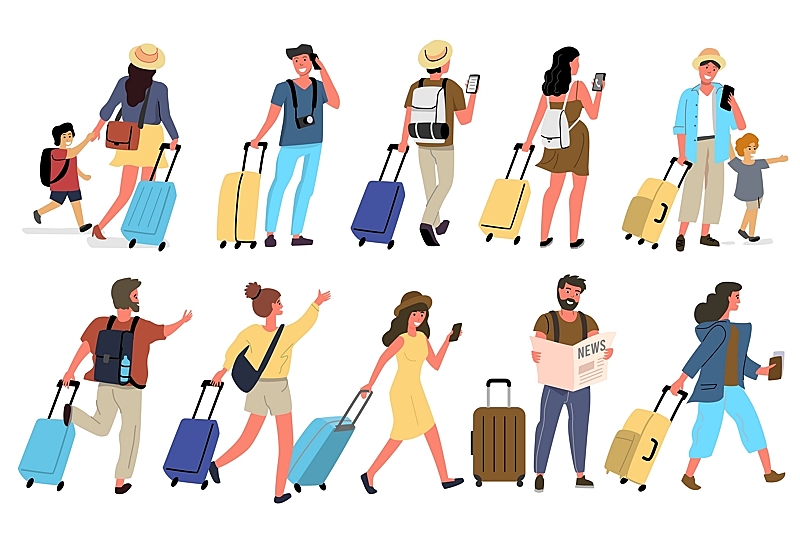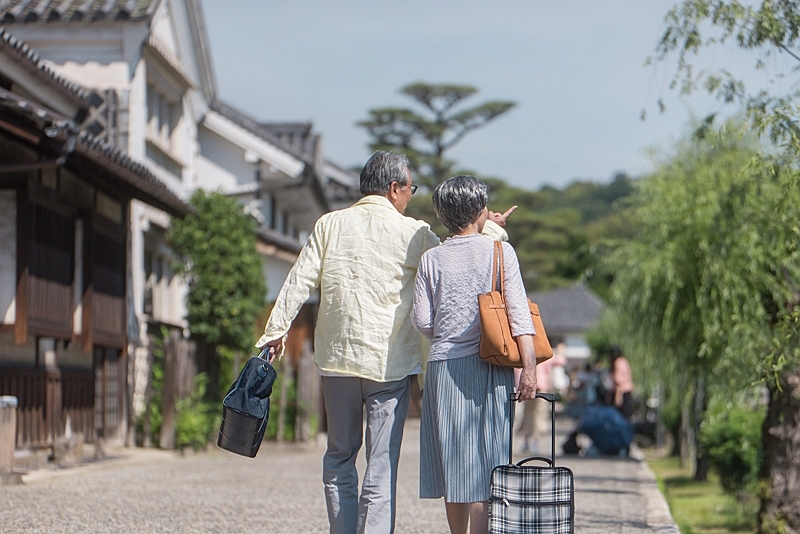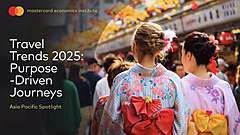
JTB forecasted the total number of Japanese travelers would be up 5% year on year or down 5% over 2019 to 28.6 million during this coming New Year holiday period between December 23 2023 and January 3 2024.
Domestic travelers with 3 nights and 4 days or longer increase
Domestic travelers are estimated to increase by 3.7% year on year to 28 million (down 5% over 2019. JTB said desire to travel has recovered to the 2019 level, but the forecast is smaller than the 2019 result because a holiday sequence during the period is not so good.
The average domestic travel expenses per traveler is estimated at record-high 41,000 JPY, 20.8% more than a year ago or 28.1% more than 2019, primarily because travel-related costs have recently hiked. The total amount is expected to increase by 14.9% year on year to 1,148 billion JPY (up 22.6% over 2019).
According to the JTB survey, the most selected reason for domestic travel was ‘spending time with family (35.7%),’ followed by ‘relaxing and taking it easy (27.3%)’ and ‘going home (26.3%).’’
The most selected travel days were ‘1 night and 2 days (32.3%),’ but the ratio was down 3.3 points from a year ago. While ‘2 nights and 3 days (27.6%)’ also decreased by 1.0 points, stays from 3 nights and 4 days to 6 nights and 7 days increased respectively.
The most selected travel companion was ‘family (24.9%),’ followed by ‘alone (19.8%)’ and ‘married couple (17.6%).’ Compared to a year ago, the ratio of ‘friends’ was up 3.4 points.
The most selected destination was ‘Kanto (24.7%),’ followed by ‘Kinki ’16.2%)’ and ‘Tokai (11.7%).’ JTB said that domestic package tour bookings were up 15% year on year as of December 4, particularly with more bookings for Kanto including Tokyo Disneyland and Kansai including Universal Studio Japan.
The most selected travel expenses were ’20,000 JPY to less than 30,000 JPY (20.4%),’ followed by ’10,000 JPY to less than 20,000 JPY (18.8%).’ The ratio of travelers spending 40,000 JPY or more was up 4.3 points.
The most selected accommodation was ‘hotel (47%),’ followed by ‘parent’s home or relative’s home (37.0%)’ and ‘ryokan (19.9%).’
Overseas travel expenses are polarized
Japanese outbound travelers are expected to increase by 160.1% year on year or decrease by 29.9% over the same period 2019 to 580,000, and the average travel expenses per traveler was estimated at 222,000 JPY, 7.9% less than a year ago or 9.9% more than 2019. The total amount of travel expenses were up 139.6% year on year to 128.8 billion JPY.
JTB said short trip to Asia is popular due to rise in costs and weaker yen, while a certain number of people are also visiting Europe in addition to Hawaii.
The most selected travel days were ‘3 nights and 4 days (24.0%),’ followed by ‘8 nights or more (17.3%),’ ‘4 nights and 5 days (13.3%)’ and ‘5 nights and 6 days (12.7%).’ Compared to 2019, the ratio of ‘3 nights and 4 days or longer’ was up 1.9 points.
The most selected travel expenses were ‘200,000 yen to less than 300,000 yen (15.3%),’ followed by ‘400,000 yen or more (14.7%)’ and ’40,000 yen to less than 50,000 yen (12.7%).’ Compared to the same period in 2019, the total amount under 50,000 yen increased by 10.99 points, and the total amount over 200,000 yen increased by 7.3 points.
In addition, JTB also surveyed people's intentions regarding future overseas travel.The most selected destination, saying ‘I want to go right away,’ was ‘Hawaii (14.3%),’ followed by ‘Europe (12.7%).’
Negative responses include ‘I would like to go if there were no security or health issues (18.4%)’ and ‘I would not be able to go even if I wanted to because of the effects of the weak yen and high prices'' (17.0%).’





